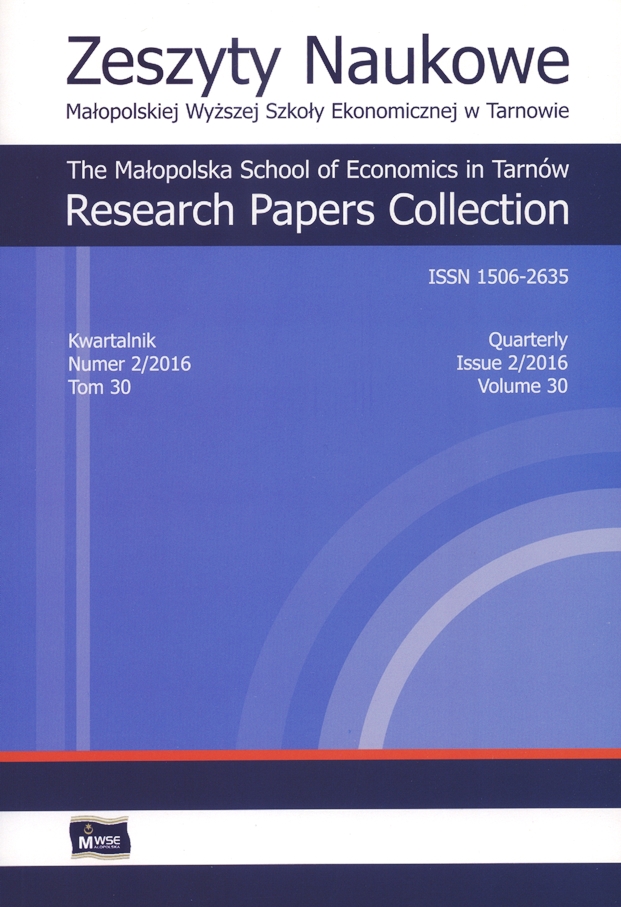Abstract
: The functioning of an organisation in a dynamically changeable and complex surroundings requires the systematic improvement of competences conditioning the growth of its competitiveness. The main factor deciding about the possibility of undertaking effective and efficient activities conditioning the use of emerging opportunities and the avoidance of threats and dangers is the possessed human capital. Therefore, it is of the utmost importance to orient towards the quality of working conditions and work relations which, to a great extent, decide about the possibility of the development of human capital and, as a consequence, the improvement of the results achieved by an organisation. The aim of the article is to take up the attempt to present the expectations of various generations of professionally active workers as for the quality of conditions and work relations in an organisation. By means of an analysis of the literature, the author makes an overview of the expectations of a modern worker (various age groups of the Polish people), as well as the existing possibilities. The effect of the author’s work is an attempt to define challenges for the functioning of contemporary organisations, an overview of the expectations of those professionally active towards a potential employer and the relations between working conditions and work relations and the quality of an organisation’s functioning.
References
Berkup, S.B. (2014). Working with Generations X and Y in Generation Z period: Management of different generations in business life. Mediterranean Journal of Social Sciences, 5(19), 218–229.
View in Google Scholar
Czekaj, J., Ziębicki, B. (2015). Metodyczne aspekty lean administration. Przegląd Organizacji, 9, 61–68.
View in Google Scholar
Gajdzik, B. (2015). Planowane zachowania pracowników a doskonalenie organizacji. Problemy Jakości, 3, 16–21.
View in Google Scholar
Goliński, M., Mantura, W. (2015). Wykorzystywanie badań rynkowych w zakresie kompetencji pracowniczych w doskonaleniu zarządzania zasobami ludzkimi. Przegląd Organizacji, 11, 27–33.
View in Google Scholar
Gross-Głowacka, E. (2016). Rola koncepcji zarządzania różnorodnością w doskonaleniu organizacji. Problemy Jakości, 48(4), 28–34.
View in Google Scholar
Juchnowicz, M. (2010). Zarządzanie przez zaangażowanie. Warszawa: PWE. ISBN 978-83-208-2010-2.
View in Google Scholar
Kahan, W.A. (1990). Psychological conditions of personal engagement and disengagement at work. Academy of Management Journal, 33(4), 692–724.
View in Google Scholar
Kolman, R. (2009). Kwalitologia – wiedza o różnych dziedzinach jakości. Warszawa: Placet. ISBN 978-83-7488-133-3.
View in Google Scholar
Kozioł, L. (2015). Organizacja stosunków i warunków pracy w przedsiębiorstwie. W: A. Kozina (red.). Wybrane problemy zarządzania relacjami w przedsiębiorstwie (s. 11–35). Kraków: Wyd. Mfiles.pl. ISBN 978-83-941408-2-3.
View in Google Scholar
Kroenke, A. (2015). Pokolenie X, Y, Z w organizacji. Zeszyty Naukowe Politechniki Łódzkiej. Organizacja i Zarządzanie, 61(1202), 91–104.
View in Google Scholar
Lotko, M., Lotko, A. (2015). Atrybuty jakościowe usług zapewnienia bezpieczeństwa pracy. Problemy Jakości, 47(11), 28–33.
View in Google Scholar
Ludwikowska, K. (2015). Wyzwania nowoczesnego menedżera w procesach doskonalenia pracowników. Zeszyty Naukowe Politechniki Łódzkiej. Organizacja i Zarządzanie, 61(1202), 105–118.
View in Google Scholar
Łukasiński, W. (2015). Kapitał relacyjny źródłem trwałego sukcesu organizacji. W: A. Kozina (red.). Wybrane problemy zarządzania relacjami w przedsiębiorstwie (s. 37–62). Kraków: Wyd. Mfiles.pl. ISBN 978-83-941408-2-3.
View in Google Scholar
Skawińska, E., Zalewski, R. (2016). Konkurencyjność – kluczowe czynniki sukcesu przedsiębiorstw w XXI w. Przegląd Organizacji, 3, 16–25.
View in Google Scholar
Skrzypek, E. (2012). Efektywność i jakość w organizacji. Problemy Jakości, 44(4), 4–9.
View in Google Scholar
Szelągowska-Rudzka, K. (2016). Partycypacja bezpośrednia pracowników a innowacje i innowacyjność organizacji. Przegląd Organizacji, 5, 23–29.
View in Google Scholar
Szostek, D. (2016). Patologiczne zachowania pracowników w aspekcie jakości środowiska pracy. Problemy Jakości, 3, 30–34.
View in Google Scholar
Szubstarska, J. (2007). Elastyczny model zatrudnienia i pracy a jakość życia. W: E. Skrzypek (red.). Uwarunkowania jakości życia w społeczeństwie informacyjnym (s. 117–119). Lublin: Wyd. UMCS. ISBN 978-83-924547-1-7.
View in Google Scholar
Szudrowicz, I. (2014). Identyfikacja pracownika z przedsiębiorstwem. Problemy Jakości, 6, 19–24.
View in Google Scholar
Walas-Trębacz, J. (2012). Kapitał ludzki jako podstawowy zasób kształtujący wartość przedsiębiorstwa. W: M. Tyrańska (red.). Współczesne tendencje w zarządzaniu zasobami ludzkimi (s. 93–128). Warszawa: Difin. ISBN 978-83-7641-588-8.
View in Google Scholar
© Copyright by Małopolska School of Economics in Tarnów. The articles are available under the Creative Commons Attribution NonCommercial-NoDerivatives 4.0 International License


